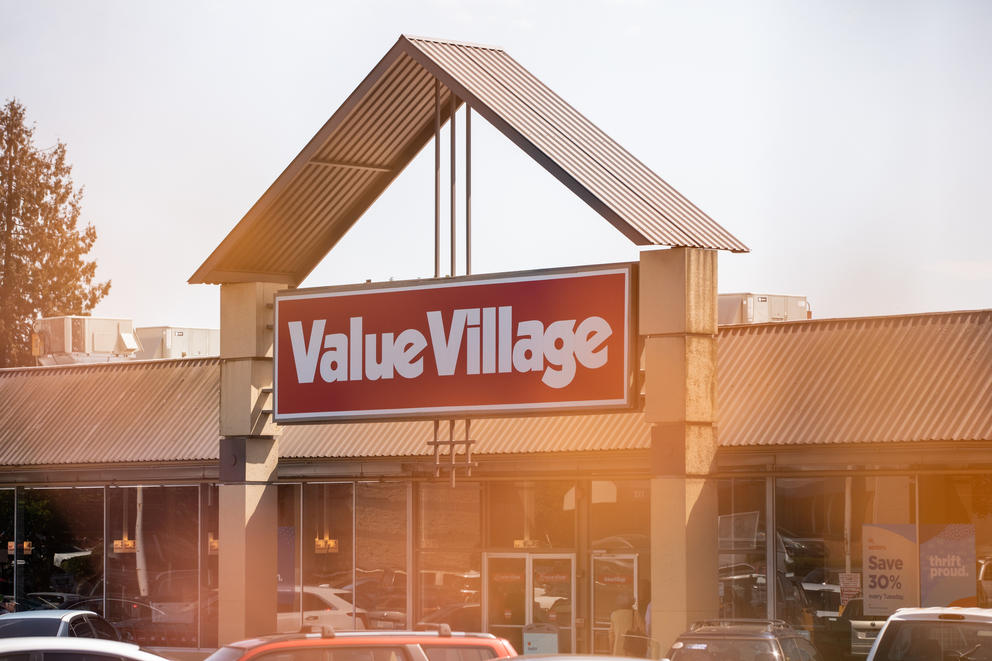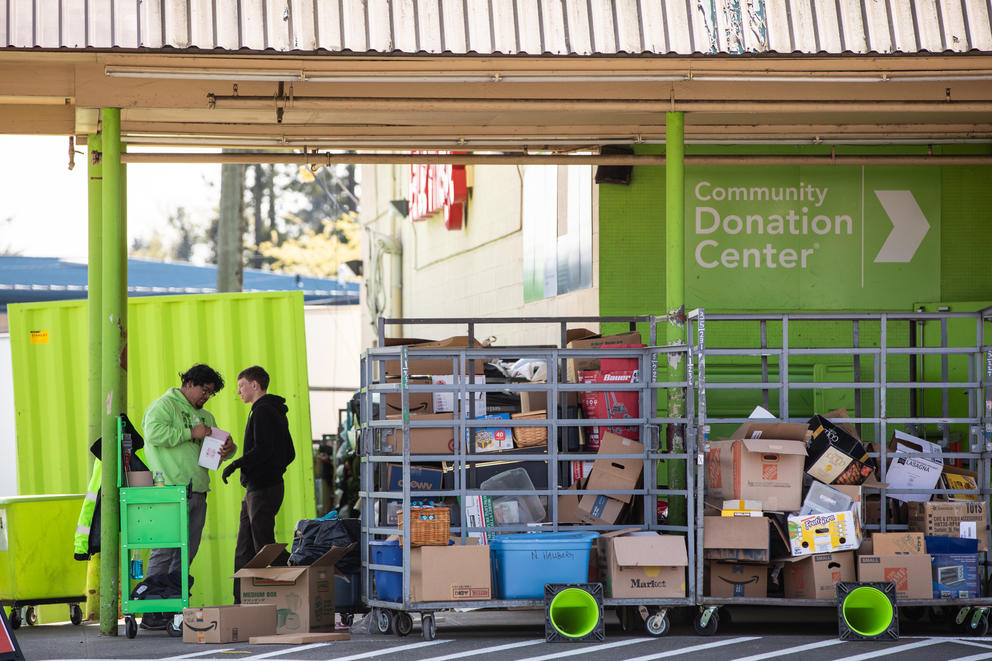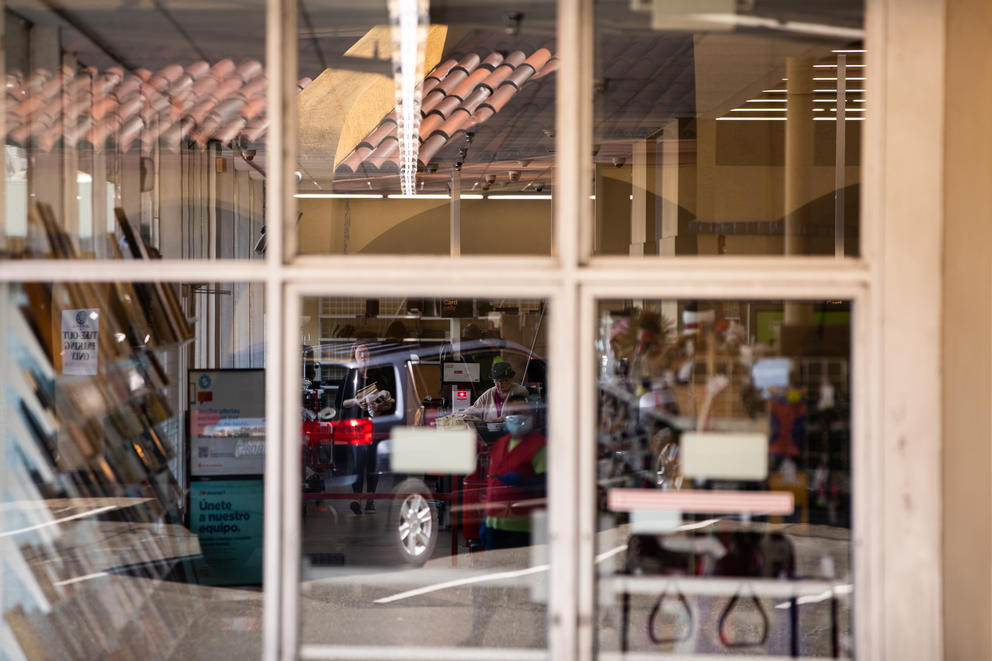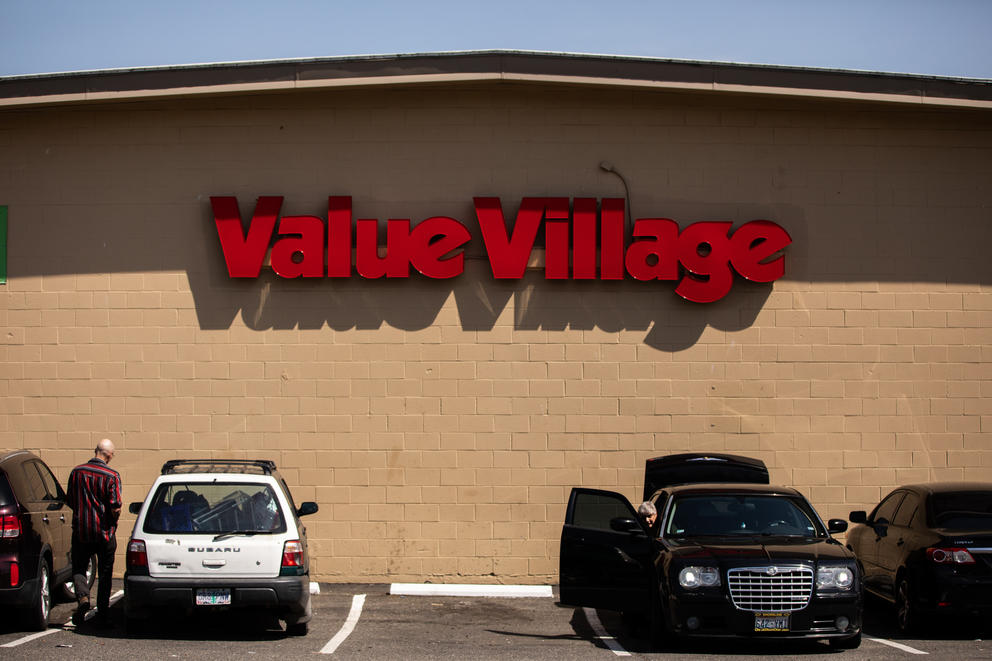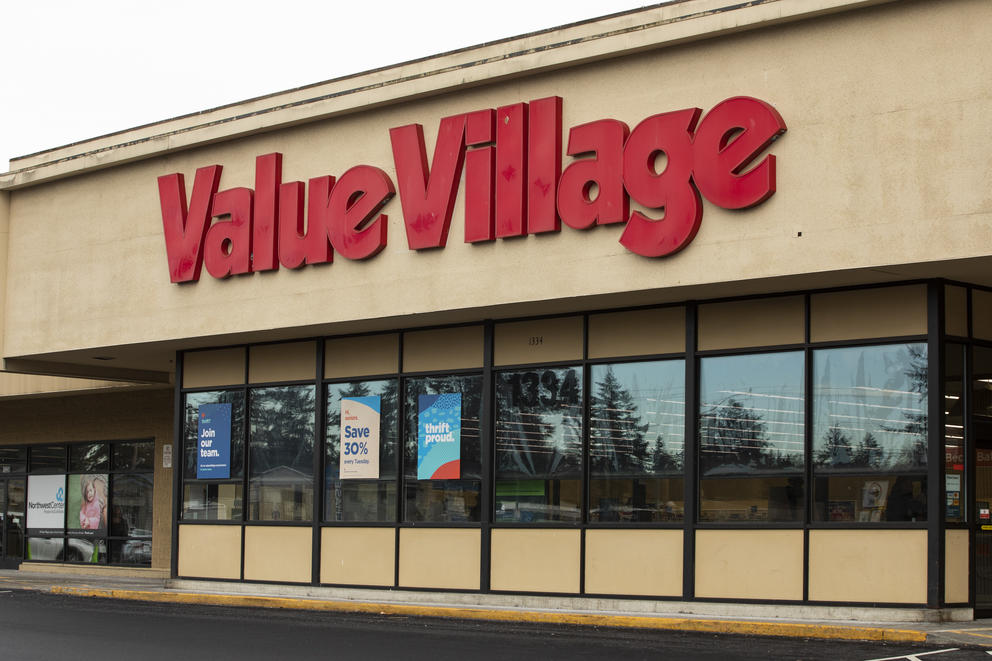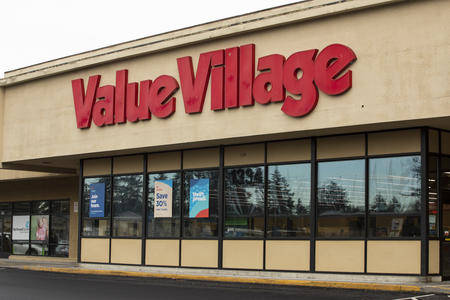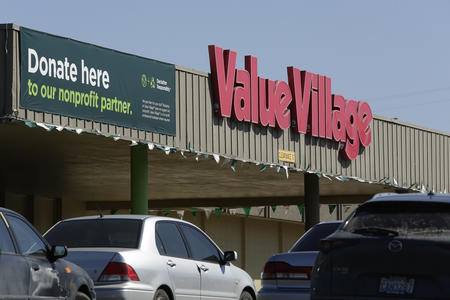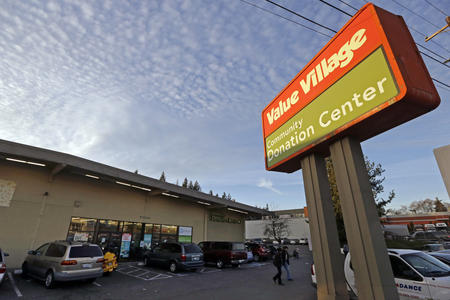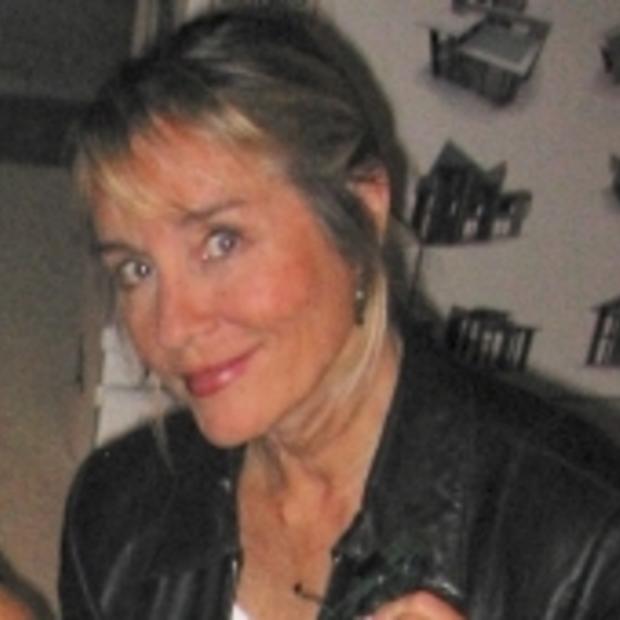The long-awaited decision sparked a wide range of responses – from exuberant backslapping among the corporation’s top executives and followers on social media to hand-wringing among consumer protection advocates and cries of shock among nonprofit thrift stores. Truth in Advertising (TINA.org), a Madison, Conn., consumer-advocacy nonprofit dedicated to fighting false advertising and deceptive marketing, called the ruling “bad news.”
“This ruling is an insult to all the real, genuine nonprofits working hard to help real charities at work helping people,” said Susan Smith, manager of a Kirkland-based, all-volunteer nonprofit thrift store, Eastside Community Aid, funding housing, hunger and mental health. “Value Village is in the business of making money – as much as possible – and not really focused on helping people.”
In 2017, Attorney General Bob Ferguson first filed charges against the company, claiming that it had deceived thousands of Washington consumers and donors for more than a decade, in violation of state law, with an aggressive marketing campaign that created the impression that Value Village itself was a nonprofit or charity, “hiding its for-profit status behind a veneer of charitable goodwill.”
The State Supreme Court held, however, that the attorney general’s claims against the for-profit company infringe upon its First Amendment right to engage in charitable solicitation as a commercial fundraiser. Value Village has defended its banners, ads, and signs appealing for donations on behalf of what it calls its “charity partners” as fully protected charitable free speech. The company gets almost all of its store inventory by buying used goods at low per-pound rates from these charity partners, who receive them as donations through various drop-off and pick-up programs, including donation bins in parking lots as well as on-site Community Donation Centers at the stores. Value Village then marks them up for resale at its own thrift stores.
In announcing his lawsuit, Ferguson tweeted a catchy graphic that revealed the surprisingly small amounts paid by Value Village to its charity clients. A 2015 contract between Value Village and one charity revealed that the charity was paid 4 cents per pound by Value Village for clothing and shoes, 2 cents per pound for miscellaneous housewares, toys and books, and 2 cents per item for furniture and other “large items.” “Before the office's 2015 investigation, Value Village paid no money whatsoever to charities for donations of ‘hard items, such as furniture, housewares and toys,’” read the caption.
Richard Medway, general counsel and chief compliance officer for Savers Value Village, said in a prepared statement, “We are pleased with the Washington Supreme Court’s unanimous ruling. We’ve always been proud of the positive impact we provide both for the environment and charitable organizations, and we are delighted the Court acknowledged the benefits of our business model.”
Savers former President and CEO Kenneth Alterman crowed, “Justice served,” while supporters and employees cheered the outcome on LinkedIn. “Woohoo [party favor emoji]” posted a donation experience manager for the company, “Huge congrats to you and the team – so glad the truth prevailed!”
The ruling drew outrage from Truth in Advertising. Laura Smith, legal director of TINA, told Crosscut that the ruling in effect rubber-stamps Value Village’s past alleged misleading marketing practices, encouraging others to do the same. The Madison, Conn.-based nonprofit organization aims to empower consumers and fight false advertising and deceptive marketing.
“Value Village, whose president testified at trial that he knew consumers mistakenly believed the billion-dollar corporation was a nonprofit,” said Smith in an email, “now has the Washington Supreme Court’s seal of approval allowing it to knowingly mislead consumers into thinking the for-profit company is a charity.”
Some argue that such trends could hurt nonprofits competing with for-profit stores like Value Village, part of the global thrift retail chain Savers Value Village, with some 314 stores across the United States, Canada and Australia (including the brands Village des Valeurs, Unique, 2nd Ave, and others), which is in turn owned by the parent company TVI, Inc. In contrast to nonprofits that operate their own thrift stores, such as Salvation Army or Goodwill, TVI is a private equity-owned company (owned by Ares Management Corporation), and, unlike those nonprofits, does not generally disclose its revenue (although the company’s prospectus to the SEC does reveal that information) nor the share of its profits that benefits charity.
Tamara Asakawa, director of Lifelong Thrift, a Seattle nonprofit thrift store, echoed Susan Smith’s complaints. “I’d rather it be transparent for consumers. I also understand how business works; it’s not always fair,” says Asakawa. “But this ruling reinforces that image of big business deceiving people – and they get to do it and it’s just fine – when so many are just struggling to survive. … And all small thrift stores who donate to a cause have a hard time, with expenses rising.”
Harvard University law professor Rebecca Tushnet, who signed on to TINA’s amicus brief in the Supreme Court case, agreed that the ruling, by repudiating the deception claims made by Attorney General Ferguson, could end up perpetuating or encouraging misleading practices: “There are important consumer protection interests at stake.” Their advertising, she said, was “fundamentally commercial speech” as opposed to charitable speech, which is fully protected by the First Amendment. “They’re selling furniture, not membership in a nonprofit organization.”
Two of Value Village’s charity partners, Northwest Center and Big Brothers Big Sisters of Puget Sound in Washington, submitted a joint amicus brief describing the thrift-store conglomerate’s financial support as critical to their missions, providing publicity as well as a “reliable source of funding,” being paid for every item delivered, regardless of whether it is resold.
Not all charities that collect and then sell goods to Value Village consider their partnership arrangement with the for-profit as fair and as equal as the term “partnership” might suggest. Stacy Dym of the Arc of Washington charged that her charity, which had worked with Value Village for decades, was left high and dry after the company canceled a contract that helped the charity raise money but favored the store and not the charity.
“The charities are only getting a tiny slice of the business,” said Dym. “People don’t realize that they’re donating to Savers, not The Arc. If there’s money after our expenses of soliciting for goods and picking them up, we get to keep it. But we may not turn a profit. We may even lose money – and we have.”
In the end, The Arc, which had invested in truck leases, fundraising personnel, and other expenses, was held responsible for $150,000 in truck leases in 2020, losing money and having to cut much of its staff, when Value Village abruptly severed ties with the organization.
To see what charities are paid today, Crosscut dug into Washington state records to find a contract between TVI and Big Brothers Big Sisters of Puget Sound. For goods given to “community donation centers” at Value Village stores, Big Brothers Big Sisters was promised 5.5 cents per pound for clothing and soft goods like linens; 3 cents per pound for “miscellaneous” items such as toys, games and jewelry’; 2 cents per pound for books; and 3 cents per item for furniture.
Northwest Center, with which the company also has a longstanding relationship through its Big Blue Truck, is paid 47 cents per pound for delivered clothing and soft goods in the Puget Sound area, 15 cents per pound for miscellaneous items, 2 cents per pound for books, and 15 cents for furniture and other large items, like bikes, computers and exercise equipment.
Given such low costs, the margins between what Savers pays its charities and what the items earn on the sales floor is striking. Some examples were cited by local news organization InvestigateWest, which often partners with Crosscut, in a 2015 article: A vintage women’s blouse acquired for 10 cents goes on sale for $9.99; a purse gotten for a quarter retails for $12.99; a piano apparently acquired for 3 cents might retail for $99.99.
Harvard’s Tushnet and other lawyers reflect that U.S. Supreme Court rulings going back decades have sided largely with commercial fundraisers on free-speech grounds, and this Washington state ruling strengthens that pattern. “It opens the door for more people to do this sort of thing,” she says.
The First Amendment
The day the Value Village case was to be heard in October 2022, Attorney General Ferguson announced in a tweet, “Solicitor Gen. Noah Purcell is before the Supreme Court today arguing Value Village can’t hide behind the 1st Amendment to deceive customers into thinking that purchases at its stores benefit charity or that it is a charity or nonprofit.”
However, the state’s uphill battle against Value Village’s First Amendment defense goes back years, to negotiations with the company in 2014 before the state sued. During the state’s investigations, Value Village rejected the state’s demand that it post signs in stores specifying what it paid charities for various types of donated goods – clothing, books and furniture – citing a 1988 U.S. Supreme Court decision.
That ruling, Riley v. Nat’l Fed’n of the Blind of North Carolina, invalidated a North Carolina regulation prohibiting professional solicitors from retaining “excessive” fees and requiring disclosure of what percent of those fees goes to charity. The court said such restrictions were burdensome and infringed on a speaker’s freedom to convey a message. It is one of several precedents in which the U.S. Supreme Court ruled in favor of commercial fundraisers, who had argued that charitable fundraising is protected by the First Amendment.
As Harvard’s Tushnet describes it, that precedent, along with several others (Schaumburg v. Citizens for a Better Environment [1980]; Sec’y of State of Maryland v. Munson [1984]), protected fundraisers from being called fraudulent for having high soliciting costs: “Even if 98% of the amount of donations went to a for-profit fundraiser, that tiny 2% rendered the whole transaction charitable,” Tushnet said.
Value Village also argued in support of its First Amendment rights in a preemptive lawsuit filed in 2017 to try to head off Ferguson’s suit, which accused the attorney general of “bad faith” and harassment. A federal court judge dismissed that suit, ruling that the state attorney general had an “important state interest” in protecting Washington donors, because so many people visit Value Village stores.
Bringing suit in 2017, the state of Washington alleged that the thrift-store chain had created a “deceptive net impression” that it was a charitable enterprise and that buying from its stores directly benefited the charities with which it partners. A trial court agreed in 2019, on three of seven counts. The trial court judge concluded that TVI “knew or should have known its advertising and marketing had the capacity to deceive consumers,” based on consumer complaints, market research that showed confusion by the public about the company’s charitable status, and evidence that the company capitalized on that confusion.
In oral arguments before the Washington Supreme Court, Solicitor General Purcell argued that even though the stores didn’t explicitly state they were nonprofit, their advertising falsely implied this.
State Supreme Court Justice Sheryl Gordon McCloud countered, “I think there was an acknowledgment that the public in general has an impression of ‘a thrift shop,’ when they walk in, that’s not necessarily created by Value Village’s advertisements.”
Asked to cite specific statements that were false, Purcell referred to “… big posters in the store saying ‘developing nations benefit from our philanthropic and wholesale efforts,’ when in fact there were no such efforts.” But Purcell stressed that leaving a “false impression” can be equally deceptive and unlawful, since the “net impression” test is a “foundational principle of consumer protection law.”
In its petition, the state claimed that the company “purposefully marketed itself in such a way as to blur the lines between what benefitted a charity (donating at Value Village stores) and what did not (purchasing items at Value Village stores).” Shopping bags proclaimed “Value Village – good deeds, great deals,” without reference to any particular charities or their charitable missions, but rather simply to the company itself.
Fourteen other state attorneys general, representing Minnesota, Oregon, California, Colorado, Connecticut, Delaware, Idaho, Illinois, Maine, Maryland, Nevada, New Mexico, Pennsylvania and Rhode Island plus the District of Columbia, concurred. In a joint amicus brief they concluded that “deceptive commercial speech is not protected by the First Amendment” and that “commercial speech and deceptive speech” cannot be “inextricably intertwined.”
The state attorney generals wrote, “TVI’s charitable references did not convert its commercial speech into charitable solicitation; it converted its commercial speech into deceptive commercial speech.” The brief was co-led by the Minnesota attorney general; Minnesota successfully sued Savers in 2015, resulting in a $1.8 million settlement.
This time, though, Value Village’s arguments proved convincing to the Supreme Court justices, whose unanimous 9-0 ruling rests on the Riley case and upholds an earlier Appeals Court decision that also sided with Value Village. Because the stores rely on soliciting used goods, it would have been “impossible for TVI to separate these charitable solicitations from its commercial speech,” the Supreme Court found; thus, it concluded, its charitable appeals for donations were “inextricably intertwined” with its commercial appeals.
Attorney General Ferguson said he was disappointed by the ruling but added, “While the Court held that TVI’s actions were protected by the First Amendment, the Court never disputed that TVI’s marketing misled consumers into believing the company was a nonprofit.”
“This case could have come out differently. I believe it probably should have come out differently,” said Ted Mermin, director of the Center for Consumer Law and Economic Justice at UC Berkeley. “But the Washington Supreme Court was limited in what it could do by [past] U.S. Supreme Court precedents.”
However, Merman told Crosscut, “There should be room where an AG can hold a company responsible for deceptive speech.”
Harvard Law professor Tushnet, who specializes in First Amendment legal cases, said the Court could have settled this case differently. Value Village thrift stores are similar to paid solicitors for charity, but “in reality they’re not the same,” she said. “The state Supreme Court was trying to apply that principle to a different kind of interaction, and I think it was a mistake. … I wouldn't have applied that rule to for-profit furniture sales where the fundraiser also receives money for tangible goods or services.”
Risks to consumer protection going forward
At the door of a Value Village thrift store in Woodinville, there’s little to reveal the tough legal battles that have been going on for years behind the scenes.
“Actually I had no idea about the [court] ruling,” said Rochelle Desimone, a Bothell thrift shopper. Walking through the doors of this for-profit store, where the rows of clothing don’t seem very different from those in other thrift stores that are nonprofits, such as Goodwill, Desimone said, “You definitely get the feel that you’re entering a thrift store,” and went on to explain that by this she meant a place “where prices are kept low to help needy families and where profits are going to some sort of nonprofit cause.”
Another shopper, Megan of Kirkland, who didn't want her whole name used, was browsing aisles of shoes and slippers in March, about a month after the court ruling. “Yes, I assumed the store was a charity,” she said. “That picture of the disabled child in front makes you feel they’re doing something to help the community.”
What that “something” is, however, may be difficult for the average shopper to discern. “I’m sure that almost all people who shop at Value Village have no idea about the percentage of profits that actually go to charities,” said Desimone. “If the charity is only getting a minuscule fraction [of the profits], then that is deceptive,” responds the Bothell donor. “It sounds like the profit sharing should at least be 50-50!”
She also was left confused by the signage on the store facade. “You think you’re giving money to that little girl with Down Syndrome [pictured] at the front of the store.”
As an example of how consumers can be misled, one customer complained to the attorney general’s office that Value Village wouldn’t give him an extension on the store’s seven-day exchange policy, when the item was broken, given that “they are a charitable entity.’ He was outraged when customer service suggested he just write it off as a tax deduction.
“I thought they were a 'charity' as that's noted on their website and indeed they do give to a large 'number’ of charities, but as much as I admire that 100% +, selling things that are broken and then being aggressive in return tactics against those of the community who struggle to find gas money for any number of reasons, isn't right and I wanted to speak out against it.” The issue was resolved when the store gave him store credit, but it illustrates consumer confusion.
Consumers want transparency, but how can donors and consumers know where their donations are really going?
“There’s reasonable evidence that people are confused about where their donations are going,” said Tushnet.
While some customers may be confused, others are also wary. Douglas Johnston, a Duvall shopper at the Woodinville Value Village, said he likes shopping here for durable used goods, like old tools. But he’s skeptical of the store’s benevolence and the “margins going to charity.” He added, “They’d like you to think they’re a charitable benefactor, like a used-car dealer wants your trust.” So while he’ll shop here, he donates to a “Take It or Leave It” [TIOLI] swap meet on Lopez Island with a “whole different model” benefiting the community directly.
Other thrift shoppers take a stronger stand, avoiding the store. “I don’t care what the Supreme Court said. I know they were fraudulent, based on the impression that they gave with their ads – and they’re still duping the public,” said Margie Cory, a thrift shopper from Kirkland who volunteers time to a nonprofit thrift store. “They want to get that free or cheap merchandise.”
Some of the Woodinville Value Village shoppers, however, admitted they were willing to dismiss such concerns for the available bargains and convenience. “There are stores that do benefit charities, and do I think this is one of them? Not really,” laughed Elise Morrison of Woodinville. “Do I think they’re making money hand over fist? Absolutely. But will I shop here? Absolutely. And I’ll donate here because it’s easier.” Her reasons had to do with simple economics – the need to provide for her family. But asked whether it was ethical, her response was: “I can’t say that.”
Savers did not respond to questions from Crosscut about what portion it gives to its charities, but did say in a prepared statement: “The decision was not only a win for Savers Value Village, but for our customers, our nonprofit partners and communities across the state of Washington.”
The company went on to say that “During the last five years alone, we’ve paid our WA nonprofit partners more than $45 million for donated clothing and household goods and diverted more than 180 million pounds of reusable items from local landfills. We look forward to continuing our mission to create a more sustainable future as we have done for nearly 70 years.”
Some people are just looking for a bargain
“I don’t think people here are spending a lot of time thinking about the larger implications of this business,” said Dym, director of the Arc of Washington, a charity recently severed from the global conglomerate. “The ethics of it … bothers some people – and not others.” Many just want a bargain or a place to drop off donations, she said.
However, she reflected, “It’s unfair that most people believe they’re directly donating to these nonprofits, when they’re really donating to Savers. They think of Savers as the pass-through to the charities; actually the charities are the pass-through to Savers. Savers is the one who gets the profit. For pennies on the dollar, Savers is getting valuable goods to resell.”
As part of Washington state’s annual “Commercial Fundraiser Activity Report,” Value Village reports that it gives “100%” to charity, a statement flagged as deceptive in a consumer complaint cited by Ferguson.
Asked about what that “100%” means, Value Village did not answer. But a footnote suggests that the company gives its charities 100% of the “AGREED FAIR MARKET VALUE FOR PRODUCT PURCHASED IN BULK.”
Desimone told Crosscut in a followup email, “It’s shameful that they say 100% goes to charities, if in fact it does not. I have several things to donate going forward, but may give them to a Saint Vincent DePaul’s outlet.”
According to consumer protection advocates, it is unclear to average consumers that paid solicitors for charities often stand to gain a hefty cut (50% to 85% or more) of the solicitation. In California and a few other states, regulators do require disclosures by commercial fundraisers of “a percentage of the donations collected in the charity's name.”
A newly opened Savers store in Walnut Creek, California, solicits donations for PARCA (Partners and Advocates for Remarkable Children). A quick check of disclosures there reveals that in the 2020 filings, PARCA got just 3.77% and 21.87% of TVI’s gross take. The 2021 disclosure showed, in one filing, that PARCA got just 2.81%. Detailed information like this is available in California, but not Washington because of differences in state laws. The Washington Charities Division says it is a ‘ministerial office’ that conveys information reported to it, but not a regulatory office.
Furthermore, California reports a drastic drop in percentages given to charities by for-profit stores: “The percentage to charity from thrift store operations has declined over the last five years from 19.04 percent to 3.34 percent. The decline in amounts benefiting charity from thrift stores sales was primarily based on the annual reports filed by TVI. TVI reported $249.5 million in revenue in the last five years, but the amount paid to charity by TVI during that time frame fell from 16.57 percent to 3.32 percent.”
Many Value Village shoppers may still believe it’s a nonprofit, say its critics. “People here tell me, I had no idea they weren’t a nonprofit,” said Tamara Asakawa, director of Lifelong Thrift Stores, based in Seattle.
And yet, according to Asakawa, this ruling does little to disabuse people of their misconceptions. She and thrift-shop manager Susan Smith fear that the court’s validating the charitable claims of this for-profit retail giant might give such for-profit stores a competitive advantage, being perceived as a charity even though they aren’t, and cutting into the donations given to nonprofits.
“I get why people enjoy the convenience of the [Value Village] stores, being open late, and doing pickups.” However, it’s disproportionately harder for smaller, nonprofit stores (many of which are no longer open) to compete with these big stores, says Asakawa.
“We are fortunate that Lifelong has such a loyal clientele,” she says. She hopes to branch out into lower-income areas, “because more people we serve live there.”
Michael Gold, who runs thethriftshopper.com, an online national directory of 12,000-plus “charity-driven” thrift stores, has noticed more for-profit thrift stores opening in competition with traditional nonprofits. “Seven out of 10 thrift stores are nonprofit, serving charities. The rest are not.”
“Nowadays, over the past 15 years, more used-goods businesses are opening more brick-and-mortar places that are not nonprofits,” says Gold. He believes it’s up to consumers to research where they want to donate their goods.
The Washington Supreme Court ruling in this case is relatively narrow, applying only to for-profit companies collecting goods from charities, which is fortunate, according to Tushnet and Mermin.
However, there are many such companies, and their ranks may grow as the used-goods market explodes. Savers, in its filing with the Securities and Exchange Commission for a proposed IPO in March 2023, estimates that “the U.S. secondhand market, which is a subset of the broader retail market, reached approximately $35 billion in 2021 and is expected to grow to $82 billion by 2025.” To capture this new market, Savers anticipates opening many new stores in coming years, targeting 14 new stores in 2023 and “20 or more” to 2026, adding to a “market potential” of as many as 2,200 stores in all in coming years.
InvestigateWest found at least 20 regional or national branded for-profit thrift-store chains, with at least 500 stores, already in existence.
Adele Meyer, director of the Association of Resale Professionals (NARTS), a trade association representing the resale industry, said donors can be misled by for-profit thrift stores. “Consumers still don’t understand this. They think their donations are going to charity but, in reality, only a percentage is going to charity.” The rest, she said, is “going to a private entity.” But these companies, she said, “don’t hold this out to the public.” NARTS represents 1,100 resale, nonprofit and for-profit consignment shops, but, according to Meyer, members must declare themselves as either nonprofit or for-profit – nothing in between. The trade group excludes from membership any retail stores that receive inventory “originally solicited as charity” but operate for profit.
Could the growth of for-profit secondhand businesses hurt nonprofit cause-related businesses in the long term? “It could be disadvantageous to them and it would be worthwhile to do some fact-finding,” said Tushnet. Writer Kevin Johnson in NonProfit Quarterly muses on how nonprofits could benefit if the money going to for-profits were instead directed toward nonprofit causes. “How much did not flow to nonprofit work because buyers and donors were misled? Might their charitable giving have been redirected with much greater local impact?”
The case is remanded back to the trial court, and Value Village anticipates collecting attorneys’ and other fees from the state of Washington when the case is finally closed.
Answering critics who blame the state for wasting money on this case, UC Berkeley consumer law professor Mermin said that, when it comes to consumer protection, “It’s not just an abstract principle. It’s trying to keep people from being ripped off. It’s money well-spent.”
Yes, there should be more transparency for consumers,” Mermin said. “The question is: How do we get there if the First Amendment will not allow us to get there by legislative means? It’s reporting and public exposes that get us there.” Added Tushnet, “In Washington, news reporting, naming and shaming may have to suffice.”
Attorney General Ferguson, in a prepared statement, said, “We are proud that our investigation led Value Village to change its marketing practices and more clearly disclose that it is a for-profit company.”
Neither Savers nor the state would describe specifics on how the company has corrected its marketing practices since it was sued. But one significant change now visible are disclaimers by the company, on signs and on its websites, that “Shopping in our stores does not support any nonprofit.” Near donation drop-offs, other signs say TVI is a for-profit commercial fundraiser.
“It’s important for donors as well as shoppers that they understand who’s benefiting,” said thrift shopper Kathy Kirchhofer of Seattle, who was hunting for games, puzzles, and coloring books for her grandkids at a local nonprofit Saint Vincent de Paul thrift shop. She just learned that Value Village wasn’t a nonprofit. “For donors, if they knew that it was for-profit, they’d think twice about donating, if it were not going all toward helping the community, as much as they might think. For a lot of people, this is important to them.”
With the growing market for secondhand goods, Bennett Weiner of the Better Business Bureau’s Wise Giving Alliance says “transparency is that much more important, because there is so much more competition and so many people are incentivized – and willing – to give generously, because, well, it’s a charity.” The organization continues to warn consumers of Savers’ history of legal actions.
If a customer walks into a store motivated to buy or donate, they should be able to find out how the charity is benefitting, Weiner said. “If the store doesn’t answer to your satisfaction, you may want to take your business elsewhere.”
Get daily news in your inbox
This newsletter curates some of the most important headlines of the day from Crosscut and other news outlets.

